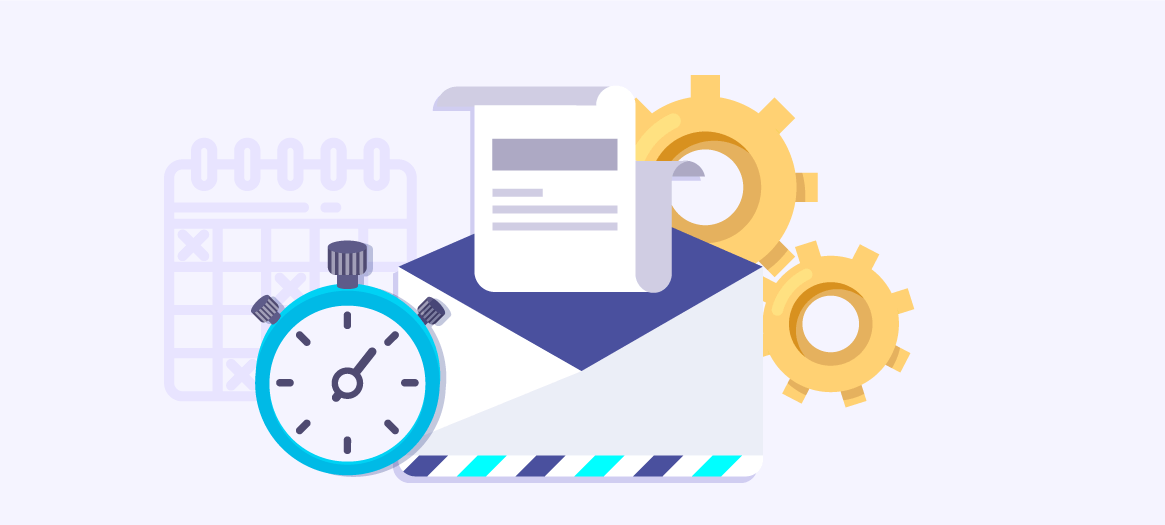
Marketing 3:15 Min read
The importance of automating your email marketing campaigns
Email marketing is a crucial technique for the hotel sector. Among other reasons, because it is a direct marketing strategy that makes it possible to provide a key service to the guest, improve your brand awareness and to foster your current guests’ loyalty, promoting, especially, direct sales.
Nevertheless, the truth is that travel consumers don’t feel comfortable receiving just any kind of email. Nowadays, knowing your hotel’s or property potential customers is critical to optimise your email marketing strategy and to send the right email at the best stage of their purchasing cycle.
There are certain actions that may trigger the delivery of specific emails that achieve not only a higher opening rate but also of target clicks. But, in order to generate this conversion level with email marketing, we need to consider automation as a key factor in the dynamics of this strategy.
So, why is automation necessary to improve your email marketing campaigns?
As previously explained, the automation of marketing means the planning, prioritisation, programming and execution of marketing processes keeping in mind certain conversion goals, on the understanding that recipients will perform specific actions that take them closer to the end of their purchasing cycle. And even if automation goes far beyond email marketing, it is directly related to this online strategy due to three fundamental reasons:
1. It helps you to personalise more effectively.
One of the key factors to the success of a hotel’s email marketing campaigns is the possibility to personalise. You have, most likely, seen it in your own inbox: one of the most frequent formulas is the personalisation of subject lines with the name of the recipient.
However, when we talk about personalisation, we must take a step further. We must not relate it just to the possibility of including personal details in the content but to sending the right content at the right time.
In other words, if you have a contact database, a CRM, automation can help you to include personal details in the content, as well as the subject line, data such as names, dates, interests, etc. to generate a more engaging and exciting content to read on emails.
Also, personalisation entails sending specific information that is of interest at the right stage of the purchasing cycle. Information related to the preferences of the contacts and that meets their expectations and interests. And for this process to be automatic, it is fundamental to segment (also automatically) the contacts.
2. It improves the segmentation capability.
Segmentation is a crucial tactic to implement marketing actions more efficiently, specifically emailing actions. That is, to plan your email marketing strategy, first of all you need to define the right segments and to perform a proper automated segmentation, you must keep in mind which sort of customer profiles your hotel has and what their purchasing cycle is like.
Obviously, the information you obtain of each contact, which we know as Hotel Data, is what will enable you to identify those profiles and cycles, analysing certain consumption trends. For this, as previously mentioned, it is necessary to have a CRM with relevant information about guests and potential guests in terms of their motivations, preferences and actions.
With this database, you will be able to observe how certain customer profiles meet certain behavioural patterns and have in common certain features or properties. Also, you will be able to identify when is the right time to communicate with them in relation to certain actions that may trigger the creation of automated segment lists.
In other words, with qualitative contact details, with Hotel Data, it is possible to determine what sort of properties and criteria related to your contacts are needed to create automated lists and to be able to offer the right information at the right time based on their interactions at each stage of their purchasing cycle.
An automated segmentation based on these criteria is more effective and practical for your sales and marketing teams since contacts can enter and exit mailing lists in a mechanically depending on the execution of certain actions and the achievement of certain goals. In short, automation improves the segmentation capability since segments are completed meeting the guidelines defined by the teams based on their goals for every type of campaign.
3. It saves you time and resources.
Nowadays, there are many triggers to send emails. As previously mentioned, certain actions or the entrance to segmented contact lists could trigger the delivery of an email, but the automation of email marketing also means creating workflows.
These workflows consider actions and are subject to the conversions of senders. For example, the birthday of the contacts on a list potentially interested in the mailing of an email with an exclusive promotion of this activity. If contacts perform an action, an additional email can be sent or hotel staff can be notified so that they can get in touch. If the desired action is not performed, if the goal of the first email is not met, a different sort of email can be sent, with information that encourages to perform another sort of action or even the same.
With these email marketing flows, sales and marketing teams can avoid performing repetitive tasks that used to consume a significant part of their time and focus on more relevant activities, such as the analysis of the performance of strategies or the creation of a better content which really adds value to the hotel.
In short, automation makes it possible to dedicate more time to the evaluation, in order to plan an efficient and effective reaction to each situation and moment of the customers’ purchasing cycle.